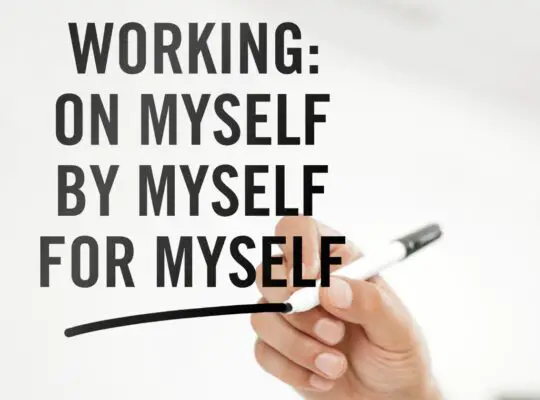How Does One Open Their Heart To Love?
Dr. Randy Kamen, author of, “Behind the Therapy Door,” describes an open heart as, “a state of being where you feel open, accepting, and expansive. Love flows through you without obstruction.”
In theory, opening your heart to love seems like a simple concept. Making this theory a reality is not at all as simple as it sounds. Before determining how to open your heart to love, you need to fully understand what love is, what an open heart is, and then you must determine how to actually open your heart to that love. These questions are precisely what we will outline and answer below.
What Is Love
Is there only one type of love or many? If there is more than one type of love, does each type of love operate under the same set of guidelines? As adults, we already know there are different types of love.
The love you feel for your mother, father, or child is different compared to the love you feel for your significant other. But is there a scientific guide book to differentiate between the different types of love?
8 Types Of Love
Psychologist Robert Sternberg’s triangular theory of love, dissects the topic of love and offers readers vast knowledge on the subject of love. He showed that each type of love is based on three different components; commitment, intimacy, and passion, Sterberg was able to identify 8 different types of love based on different combinations of these three components.
The eight different types of love are as follows:
Nonlove: The first type of love is “nonlove.” None of the three components of love (passion, intimacy, nor passion) are present in these types of relationships. Think of these relationships as your everyday casual encounters with people randomly throughout your day. Since you typically don’t engage in building any sort of long term connections with these people, it makes sense that they would fall into the “non love” category.
Liking: The second type of love is “Liking.” This type of love happens when intimacy is the only component of love that is present. These relationships tend to invoke feelings of warmth or closeness to each other. Feelings of an intensive or passionate relation are not present. This love category is better known as friendship or love for a friend.
Infatuation: The third type of love is “Infatuation.” This type of love happens when only the passion component of love is present. This presents with an increased heartbeat and other psychophysiological arousals. This is better described as the relationship or feeling of “love at first sight.”
Empty Love: The fourth type of love in “Empty love.” This type of love happens when only the decision/commitment component of love is present. Depending on where you live in the world and how life partnerships are viewed in that part of the world will depend on where this type of love is usually found, the beginning of a life partnership or at the end.
Empty love can be found at the beginning of some relationships as they have committed to attaching themselves to each other without any real deep knowledge or experience with each other. Empty love can also be found at the end of a relationship where the couple describes themselves as “having lost feelings for each other” or not being able to connect to each other anymore.
Romantic Love: The fifth type of love is “Romantic love.” This type of love happens when the intimacy and passion are both present but the decision/commitment component is not. This love can be thought of as a step beyond friendship where you like the other person and are physically attracted to them. In today’s day and age this would be considered the “dating” or “hooking up” phase.
Companionate Love: The sixth type of love is “Companionate Love.” This love happens when the intimacy and decision/commitment components of love are present but the passion component is not. We see this in society when couples have been married for a very long time. They tend to enjoy a committed friendship but the physical attraction or “spark” has vanished.
Fatuous Love: The seventh type of love is “Fatuous Love.” This love happens when the passion and decision/commitment components of love are present but the intimacy is not. This is best demonstrated in modern day media when we see whirlwind celebrity courtships where they meet in January, get engaged by March, and are married by April.
Consummate Love: The eighth and final type of love is “Consummate Love.” This love happens when all three components of love are present. Intimacy, passion, and decision/commitment are the holy trinity of love and when they come together, they create what is better known as “unconditional love.”
This is typically what most people are aiming for when searching for love. Think “ride or die” in any circumstance, regardless of what happens, cheating, breaking the law, etc. While some couples can achieve this, Bonnie & Clyde for example, most do not. This type of love is usually found as a parent’s love for their child.
The Closed Heart
Now that we’ve established the different types of love there are. We need to examine what it means to have a closed off heart. According to Aimee E. Raupp L.A.c who is a wellness expert, a closed heart is defined as, the limiting of what we allow into our lives. It is the inability to fully achieve our full potential. A closed heart limits overall wellness, careers, health, and personal relationships.
There are a variety of different telltale signs that may indicate you have a closed heart. The below are symptoms Elizabeth Hunter Diamond, Clairvoyant and Energy Healer, has established the following symptoms of having a closed heart.
Do not fear if any of the symptoms seem familiar to you. Having a closed heart currently does not mean you will have a closed heart forever. We will discuss ways you can open your heart to love later on.
- Shallow Chest Breathing: A physical symptom of having a closed off heart is shallow chest breathing. This includes short inhales and exhales that are primarily only located in the upper chest area.
- Keeping Kind People at an Arm’s Length: Another symptom of a closed off heart is keeping kind people at an arm’s length. Turning away people who are genuinely being kind or showing you compassion or being afraid to let them in is a sign of a closed heart.
- Repressed Emotions: The next sign of a closed off heart is repressed emotions. Do you tend to keep your thoughts, emotions, and feelings locked up tight? Do you constantly feel a sense of anxiety, strain, or apprehension when things happen?
Not dealing with your emotions can result in the inability to connect with yourself or anyone else. It closes you off and is a sign your heart is closed to love.
Love is one of the greatest gifts of life and you should do everything in your power to allow it to fill up our entire heart and soul. How are you supposed to bask in the glory of love if your heart is closed? The simple answer is that you can’t. In order to fully enjoy and appreciate love, you need to open your heart up to it.
Open Your Heart
Opening your heart to love is no easy task. It takes consistent effort and positive energy. In the end, the reward of an open heart is well worth the hard work and dedication. Below is a blueprint to begin the process of opening your heart.
Self-Care
The first step to opening your heart to love is making yourself a priority. How can you open yourself up to anyone or anything else if you’re first not happy with who you are. Get to know yourself, forgive yourself, understand yourself, accept yourself, love yourself, and take care of yourself.
Don’t forget you are composed of a physical body, an emotional state of being, a spiritual soul, and an intellectual mind. Nurture each and every part of yourself. Go for walks in nature, learn a new skill, try meditation, attend a fitness class. The more you know about yourself, grow yourself, and love yourself the easier it will be to open your heart up to love.
Live In The Present
a| Forgive and Forget: The first part of living in the present is forgiving and forgetting. We have a tendency to hold onto injuries and insults from our past. This breeds feelings of resentment and negativity. This is what is considered holding a grudge.
Holding onto a grudge is detrimental to your mental health. Once something is said or done, that action is over. No matter how much it stings or hurts, there is no changing it. When holding a grudge no one suffers but you. Free yourself from these negative thoughts and emotions by offering forgiveness and then letting the feelings go. This will help open your heart to love.
b| Wash Away Guilt: The second part of living in the present is washing away any guilt you have. We have all done or said things we regret. You may experience this as feeling sick to your stomach after realizing you’ve hurt someone’s feelings. This is what it means to have and hold onto guilt. Like letting go of grudges, you must let go of any and all guilt that you are harboring.
Try sitting with your feelings, determining why you feel the way you do, explore what you can do or say differently next time, and allow yourself to move on. Letting go of personal guilt will allow you to begin to open your heart to love.
c| Look Forward Not Backwards: The third and final part of living in the present is to look forward and not backwards. You can only live in the present now. The past can’t be changed. While there is nothing wrong with looking at the past and learning from it, you do not want to linger there for long.
Surrender yourself with what is happening in your life at the current moment. If you notice yourself drifting back to the past, immerse yourself in the now by using all your senses. Actively and attentively listen to the world around you.
What do you see, hear, smell, and feel? Concentrating on what is currently happening and looking forward to the future will help open your heart to love.
Keep Judgements At Bay
The next step in opening your heart to love is keeping judgements at bay.Judgment is a natural part of being human. Neurobiologists report that personal judgment is one of the brain’s defense mechanisms. We tend to develop our own perspective on other people and other situations before we have all the facts.
For example, Tara Brach, a meditation teacher and Psychologist likes to tell the following story regarding judgment, “ You are walking through the woods and you come upon a cute, friendly, and small dog. As you go to pet the dog, it becomes mean and tries biting you. You no longer view the dog as cute and cuddly.
You are overcome with feelings of anger and fear. Suddenly the wind blows and leaves that were originally at the dogs’ feet were blown away. You now notice the dog has one of its legs caught in a trap. You immediately feel compassion for the dog and understand that it’s aggressive behavior was due to his own fear, suffering, and pain.
Do your best to avoid making predetermined judgments on people, places, and things until you have all the necessary information. Do not concern yourself with the opinions of others and what they may or may not think of you. Leaving judgements behind will help open your heart to love.
Experience New Things
Another step in opening your heart to love is experiencing new things. In order to experience new things you will need to step out of your comfort zone. This is important because experiencing new things allows you to gain knowledge.
Knowledge allows you to understand and see things in a new light. Experiencing new things allows you to begin to connect with others easier and will open your heart to love.
Be Vulnerable
The next step in opening your heart to love is allowing yourself to be vulnerable. According to the Oxford English dictionary, vulnerable is defined as, “susceptible to physical or emotional attack or harm.”
In day to day life it is the willingness of an individual to put themselves at an emotional risk from being unguarded. Brené Brown, an author and professor who speaks on vulnerability, believes it shows courage and gives people the opportunity to be known and understood by those important to them.
Ways to practice being vulnerable include the following:
- Reconnecting with someone who have fallen out with
- Allowing yourself to feel emotions that are difficult to handle such as fear, shame, and grief
- Discuss mistakes you have previously made
- Taking chances even if the end result may lead to rejection
Being vulnerable allows your heart to open to love by offering yourself and others a sense of belonging and authenticity.
Final Thoughts
Opening your heart to love means much more than just stating “I have an open heart.” Opening your heart to love takes courage and strength. In order to open your heart to love you must be ready, willing, and able to be vulnerable with others, experience new things, keep judgements at bay, live in the present, and practice self-care.
Opening your heart is not a spirit but more of a marathon. It will take time, effort, and patience. Your hard work and dedication to opening your heart to love will be well worth the effort.







